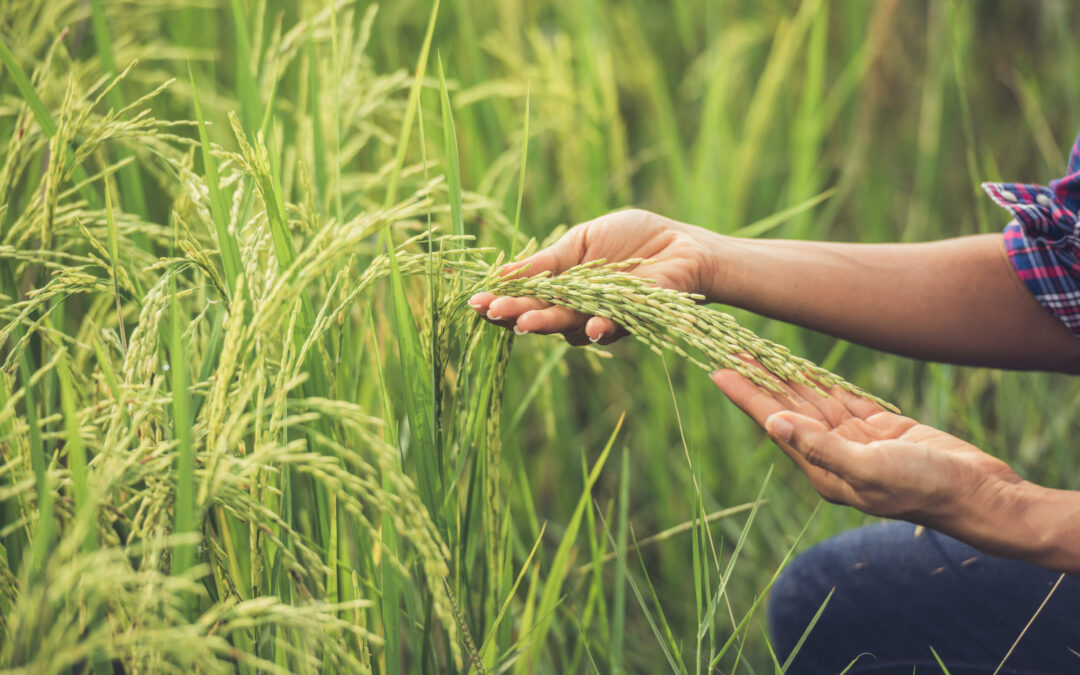Careful Chemical Use as an Agricultural Solution
Chemicals have long been an essential tool for farmers to protect their crops from pests and diseases. Pesticides, herbicides, fungicides, and other chemical solutions have revolutionized modern agriculture, allowing for increased yields and more sustainable food supplies.
However, the use of chemicals in agriculture has also raised concerns about the potential negative impacts on human health and the environment. As such, it’s essential to understand the role of chemical use in agriculture and the responsible use of these tools to ensure a sustainable future for our food supply. This blog will explore several types of chemicals and their uses in agriculture, and how we can ensure the safe and responsible use of these agricultural solutions.
Chemicals Used in Agriculture
Herbicide
Herbicides are chemicals designed to eliminate weeds and other unwanted plants that compete with crops, without harming the crops themselves. They can work in four ways: blocking the plant’s ability to produce amino acids, hindering photosynthesis, mimicking plant hormones, or inhibiting cell division.
Potassium
Potassium is a vital element that plays a unique role in plant growth and functions. It’s absorbed by plants through potassium chloride, which occurs naturally and in fertilizers. Potassium is essential in moving nutrients, water, and carbohydrates throughout the plant. It’s also necessary for activating enzymes that regulate protein synthesis.
Fungicides
Various types of fungus can cause vegetables and root crops to rot, making them particularly vulnerable. Fungicides are designed to address this problem. Fungicides are chemicals that target and kill fungi and water molds that infect plants. They work by damaging the cell membrane or inhibiting important processes in the fungus’s metabolism.
Phosphorus
Phosphorus is one of three essential minerals that plants require for healthy growth, along with nitrogen and potassium. This mineral is commonly absorbed by plants in the form of orthophosphate from the soil. Phosphorus is crucial for root growth and enhances a plant’s ability to use water efficiently.
Insecticide
Seasonal pests like locusts can cause extensive crop damage. Insecticides are used to protect plants by killing insects. These chemicals are designed to interfere with an insect’s nervous system or growth, ultimately leading to its destruction.
Nitrogen
Nitrogen is a crucial nutrient that plants need to create proteins. Nitrogen-fixing bacteria help convert nitrogen into nitrate compounds, which can be absorbed by a plant’s roots.
3 Reasons Why Chemicals Are Used as an Agricultural Solution
There are three main reasons why chemicals are used as a solution in agriculture. We’ll go over them in depth in the points below:
1. It Increases Production
Fertilizers, whether organic or inorganic, provide vital nutrients that plants need to grow and function. These nutrients, such as nitrogen, phosphorus, and potassium, help keep plants healthy and increase production. Fertilizers can be applied directly to the soil where crops are grown, or through systems that deliver nutrients directly to the roots. Regardless of the method, the nutrients in fertilizers are essential for plant growth and development.
Nitrogen is an important nutrient that helps plants produce amino acids, the building blocks of proteins. Phosphorus is crucial for root development, photosynthesis, and energy transfer in plants. Potassium regulates is a crucial chemical that promotes stem growth and aids in cell division.
Fertilizers are essential for modern agriculture, as they provide the necessary nutrients to help plants grow and thrive. By containing essential elements, fertilizers promote healthy plant growth, increase yields, and contribute to a sustainable food supply.
2. It Controls Pests and Insects
Modern agriculture faces a major challenge in combating pests that can damage crops and threaten food supplies. Inbreeding and monoculture practices have made many crops vulnerable to a wide range of pests, including invasive plants, insects, snails, and rodents. To address this problem, farmers use pesticides, which are chemicals specifically designed to kill particular types of pests.
Pesticides come in different forms, including herbicides, insecticides, molluscicides, and rodenticides. Each type is formulated to target a specific type of pest. Herbicides, for instance, are used to control unwanted weeds and plants that compete with crops for nutrients and resources. Insecticides are used to control insects that feed on crops, such as aphids, mites, and caterpillars. Molluscicides are used to control snails and slugs, while rodenticides are used to control rodents like mice and rats.
3. It Prevents Diseases
Chemicals, particularly fungicides, are a commonly used agricultural solution to prevent and treat diseases in crops. Vegetable plants, in particular, are highly susceptible to foliar diseases caused by fungi: These diseases are as follows:
- Albugo candida is a type of water mold that can cause disease in broccoli and cauliflower crops, creating white blisters on the plant.
- Downy mildews are a type of plant parasite that can infect crops like vegetables.
- Powdery mildews are a type of fungi that can damage crops.
The use of fungicides, therefore, is an important tool in modern agriculture to protect crops from disease. However, their use must be carefully managed to minimize the potential negative impacts on human health and the environment. In addition, efforts to develop more sustainable, long-term solutions such as crop rotation, intercropping, and the use of natural predators should be explored to reduce reliance on chemical solutions.
Contact Us for More Information About Agricultural Solutions
Healthy Farms is a provider of all-natural agricultural products for farmers. In addition to natural solutions, we also carry chemical products for those who require extra solutions for their farming needs. If you have questions about our products or need more information on what solutions work best for your farm, please do not hesitate to reach out to our team of experts. We are happy to provide you with guidance on your journey to a better, healthier, farm.
